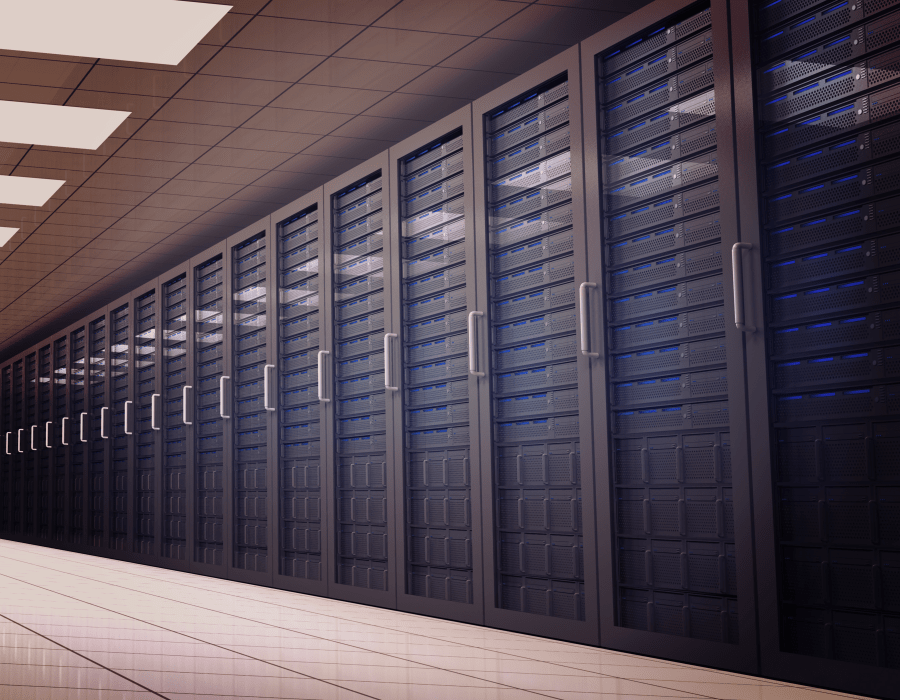In today’s digital world, businesses depend on certified data centers to store, process, and protect their data. But not all data centers meet the same standards. This is why data center certifications are important. These certifications confirm that a facility follows strict rules for security, reliability, and compliance.
Whether a company is choosing colocation or building its own infrastructure, understanding data center certifications is key. These certifications help businesses select data centers that provide strong security, high uptime, and regulatory compliance.
Why Data Center Certifications Matter
Data center certifications act as a benchmark for quality and reliability. Businesses can use these standards to make informed choices when selecting a provider. Some of the key advantages include:
Reliability: Certified data centers provide consistent uptime with backup power and cooling systems. This reduces the risk of outages.
Security: Certifications ensure strong data center security by requiring strict controls to prevent cyber threats and physical breaches.
Compliance: Companies in regulated industries need certified data centers to meet legal and industry requirements.
Efficiency: Certified facilities use energy-efficient cooling and power systems to improve performance and sustainability.
Key Data Center Certifications
Different organizations issue data center certifications to ensure high standards. Here are some of the most important ones:
1. Uptime Institute Tier Certifications
The Uptime Institute Tier Certifications rank data centers based on reliability and redundancy:
Tier I: Basic infrastructure, minimal redundancy. Best for small businesses.
Tier II: Some redundancy in power and cooling.
Tier III: N+1 redundancy, meaning systems can be maintained without shutting down operations.
Tier IV: The highest level, 2N+1 redundancy, ensuring 99.995% uptime.
Tier III and Tier IV data centers are ideal for businesses that require high availability and disaster recovery solutions.
2. ISO 27001 – Information Security Management System (ISMS)
ISO 27001 is a global standard that focuses on data center security. It ensures that facilities follow best practices in:
- Risk management
- Access control
- Data encryption
- Cybersecurity policies
This certification is essential for businesses that handle sensitive customer information and need strong security protections.
3. SOC 1, SOC 2, and SOC 3 Compliance
These audits measure a data center’s security, availability, and operational reliability:
SOC 1: Focuses on financial reporting and internal controls.
SOC 2: Evaluates security, availability, processing integrity, confidentiality, and privacy.
SOC 3: A public report that verifies compliance with SOC 2 standards.
SOC 2 compliance is widely adopted by cloud service providers and enterprises needing strict data security and privacy.
4. PCI DSS – Payment Card Industry Data Security Standard
Data centers handling credit card transactions must meet PCI DSS requirements. This certification ensures:
Secure network infrastructure
Strict access control
Data encryption and regular security testing
Retailers, banks, and payment processors rely on PCI DSS-certified data centers to protect customer transactions from fraud and cyberattacks.
5. HIPAA – Health Insurance Portability and Accountability Act
For data centers that store healthcare-related data, HIPAA compliance is a must. It ensures:
Strict access controls for patient data
Secure storage and encryption of health records
Regular audits to maintain compliance
Hospitals, insurance providers, and medical research companies must use HIPAA-compliant data centers to protect patient privacy.
6. ANSI/TIA-942 – Telecommunications Infrastructure Standard
This certification focuses on:
Data center reliability and redundancy
Best practices for network cabling and infrastructure
Power and cooling efficiency
The ANSI/TIA-942 certification helps businesses identify high-performance facilities for demanding workloads.
7. LEED – Leadership in Energy and Environmental Design
Sustainability is a growing concern in the data center industry. LEED-certified data centers focus on:
Energy-efficient designs
Reduced carbon footprint
Sustainable construction materials
Enterprises with ESG (Environmental, Social, and Governance) goals often prefer LEED-certified data centers for their commitment to green technology.
How Certifications Influence Business Decisions
Choosing a Colocation Provider
When selecting a colocation provider, businesses should look for data centers with certifications that match their needs.
For example:
A financial company may prioritize SOC 2 and PCI DSS compliance to protect transactions.
A healthcare provider must choose a HIPAA-compliant data center to store patient records securely.
Ensuring Regulatory Compliance
Many industries have strict regulations for data security and uptime. Hosting infrastructure in a certified data centerensures compliance and helps businesses avoid costly fines or legal issues.
Building Customer Trust
Customers expect businesses to handle their data safely and securely. A certified data center reassures clients that their information is stored and managed according to industry best practices.
Enhancing Business Continuity
Companies that use Tier III or Tier IV certified data centers benefit from better disaster recovery solutions. These facilities provide higher uptime, reducing the risk of service interruptions and data loss.
The Future of Data Center Certifications
Technology is evolving, and new certification standards are emerging to address modern challenges. Some key trends include:
Zero Trust Security Models: Future certifications will focus more on strict access controls to reduce security risks.
AI-Powered Compliance Monitoring: AI is playing a bigger role in data center security and compliance monitoring. This helps facilities maintain standards with real-time threat detection and automated reporting.
Sustainability Standards: Certifications for carbon neutrality and energy efficiency will become more important. Companies will seek data centers with green energy solutions to reduce environmental impact.
Why Certifications Matter for Your Business
Data center certifications are more than just labels—they represent a commitment to security, reliability, and compliance.
If your business needs colocation, cloud hosting, or secure data storage, choosing a certified data center gives you peace of mind. With certifications ensuring security, uptime, and compliance, you can focus on growing your business without worrying about data risks.
Looking for a Certified Data Center?
Make sure your business stays secure and compliant. Choose a data center with the right certifications for your needs. Contact us today to explore your options!





